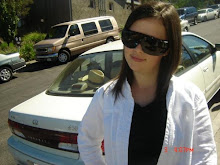It is a truth universally acknowledged that a zombie in possession of brains must be in want of more brains.
So begins Pride and Prejudice and Zombies, an expanded edition of the beloved Jane Austen novel featuring all-new scenes of bone-crunching zombie mayhem. As our story opens, a mysterious plague has fallen upon the quiet English village of Meryton -- and the dead are returning to life! Feisty heroine Elizabeth Bennet is determined to wipe out the zombie menace, but she's soon distracted by the arrival of the haughty and arrogant Mr. Darcy. What ensues is a delightful comedy of manners with plenty of civilized sparring between the two young lovers -- and even more violent sparring on the blood-soaked battlefield. Can Elizabeth vanquish the spawn of Satan? And overcome the social prejudices of the class-conscious landed gentry? Complete with romance, heartbreak, swordfights, cannibalism, and thousands of rotting corpses, Pride and Prejudice and Zombies transforms a masterpiece of world literature into something you'd actually want to read.
Plot summary courtesy of the paperback back cover. (And in regard to the last sentence, may I say, "Oh snap!")
My first reaction while reading was that the book wasn't quite as fun or funny as I was expecting. I was expecting more laugh-loud-loud humor, but the writing is witty and the humor more subtle. I did have some laugh-out-loud moments starting with Elizabeth's visit to Collins and Charlotte, but that's more than 100 pages in. Also, I thought this would be a more fast-paced read, but it's very faithful to the pacing of the original. It took longer for me to read -- and become invested in the story -- than I thought it would.
That being said, I still enjoyed the book tremendously once I adjusted my expectations. I think Grahame-Smith's approach was wildly clever, especially in the plot points he took more liberties with. I especially liked Charlotte's storyline and Elizabeth's bewilderment at no one's noticing Charlotte's deterioration. This is the point at which I really became invested and had fun reading. I didn't really think it was necessary to include Collins' intentions to hang himself after Charlotte's beheading, but apparently Grahame-Smith felt Collins deserved to be killed off. I loved the comeuppance that Wickham received at Darcy's hand; I thought it very fitting. And as surprised as I was when Elizabeth and Lady Catherine began their duel, it worked very well in this alternate universe. The tailoring of the world of the original Pride and Prejudice to Grahame-Smith's zombie-ravaged version was thorough and creative, although I think he could have taken a few more chances with the source material.
Side note: I particularly enjoyed the repeated mentions of the Bennet sisters' training in kung fu at the Shaolin temple in China. I was pleasantly reminded of American Shaolin, and felt clued-in to how difficult said training would have been. I appreciated Grahame-Smith's changing Lady Catherine's questioning Elizabeth about not having a tutor to questioning her about why the sisters trained in China instead of Japan, the lady's preferred choice. I just thought that was hilarious.
I would absolutely recommend this book, but expect the pace to be very consistent with the original and that the humor is more quiet and subtle. I think you will probably enjoy Pride and Prejudice and Zombies more if you have already read Pride and Prejudice, but you can still enjoy it on its own. Oh, and I checked imdb.com and as I expected, there's a movie version already in the works. Natalie Portman has been cast as Elizabeth. What do you think? I think it will probably rock it out.















